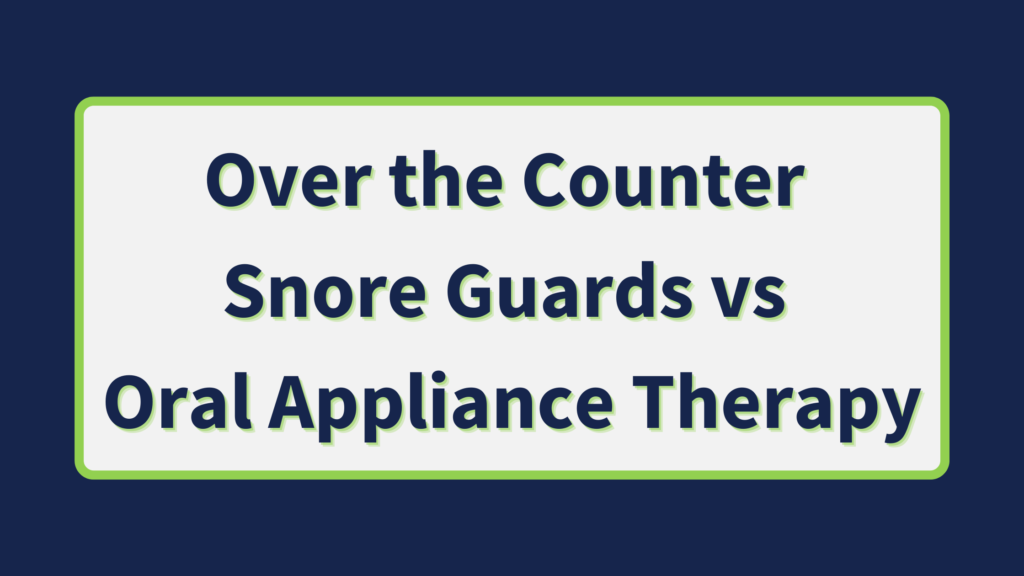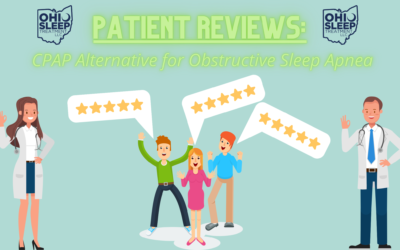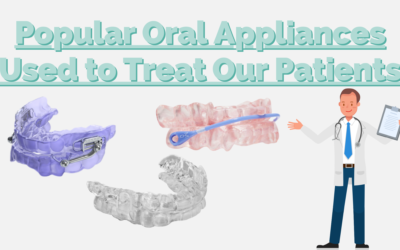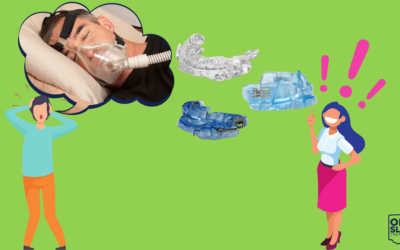Over the Counter Snore Guards vs Oral Appliance Therapy
Custom-made oral appliances continue to make a name for themselves as an effective treatment for sleep-disordered breathing. With this increase in awareness comes an increased presence of over-the-counter (OTC) snore guards. Most of the OTC snore guards use a boil and bite technique conducted by the patient at home. The marketing of OTC snore guards to patients focuses on affordability and a “DIY” mentality but are these devices truly effective? What if the problem is more complex than snoring? In the following article, we will evaluate findings from a published study comparing the two types of devices. Further, we will hear from Ohio Sleep Treatment’s Dr. Brandon Canfield on his opinion and experience with OTC snore guards. Lastly, we will discuss the benefits of seeking professional help from a qualified dental sleep medicine provider. OTC snore guards promote themselves as an immediate, quick fix to your snoring problems. In today’s environment, speaking to the consumer this way can make sense from a marketing standpoint, but less so from a healthcare perspective. Why is this a cause for concern? Without the guidance of a qualified professional, the user may put themself at risk of ineffective treatment and unnecessary discomfort. In a study where 35 patients with sleep-disordered breathing were evaluated for the effectiveness of both a custom oral appliance and a prefabricated, boil, and bite (OTC) device. Consider, how many patients simply buy an OTC snore guard, experience a lack of retention, and fail to treat sleep-disordered breathing as a result? Importantly, when a consumer buys an OTC snore guard, they miss out on the valuable expertise from a qualified sleep dentist, such as Dr. Brandon Canfield, Diplomate of the ABDSM. Ohio Sleep Treatment Co-founder and Diplomate of the American Board of Dental Sleep Medicine, Dr. Brandon Canfield, has been successfully treating his obstructive sleep apnea with oral appliance therapy for years. When asked his opinion on OTC snore guards, he explained, “I tried an OTC snore guard a couple of years ago to see what the patient experience was like. It reduced my snoring and seemed to give me good restorative sleep, but the comfort was NOT there.” Dr. Canfield further explains that he woke up a couple of mornings experiencing tooth pain to the point that he thought he may need a root canal! Even with his professional expertise, he struggled to get the OTC snore guard to mold comfortably to his teeth. When asked if he treated patients who have used OTC snore guards prior to Ohio Sleep Treatment, Dr. Canfield says, “All of my patients who shared with me their experience with OTC snore guards say the same thing: the discomfort was unbearable.” Dr. Canfield hesitates in recommending OTC guards even as an interim solution. “I can only imagine how much pain people experience with OTC snore guards when tasked with the responsibility of positioning their lower jaw forward and comfortably fitting the device to their teeth. This is something we approach slowly and uniquely based on every patient’s unique orofacial structure. It is crucial to have a qualified sleep dentist work alongside the patient in this process so as to significantly avoid the risk of issues like TMJ and tooth pain,” says Dr. Canfield. Custom-made oral appliances are more comfortable, more retentive, and allow for a methodical approach to establishing a patient’s optimal therapeutic setting. The American Academy of Sleep Medicine and the American Academy of Dental Sleep Medicine released a joint clinical practice guideline for oral appliance therapy. In the guideline, they recommend that oral appliance therapy treatment should be provided by a qualified dentist using a custom, titratable device. The protocol our qualified sleep dentists and team follow to determine the proper treatment and dental device are extensive. Our sleep dentists conduct a full assessment of the orofacial structure, including teeth, gums, airway, the TMJ, jaw range of motion, and more, in order to select the optimal device design for each unique patient. At Ohio Sleep Treatment, we work with some of the best oral device manufacturers in the industry, like SomnoMed and WholeYou. We bill most major medical insurance carriers, including Aetna, Anthem BCBS, Medical Mutual of Ohio, Medicare, Tricare, and more! We proudly offer in-house, no-interest financing. Pay in full discount is also available. To learn more about sleep apnea treatment with oral appliance therapy, click here. You can also take the quick 8-question sleepiness quiz to determine your level of risk for excessive daytime sleepiness (EDS). EDS is a common symptom of untreated obstructive sleep apnea. If you are looking for a team of qualified sleep dentists you can trust, give our clinic a call at 614-396-8286 or email info@sleeptreatmentoh.com. Dr. Brandon Canfield and Dr. Collin Emerick are Diplomates of the American Board of Dental Sleep Medicine. With their extensive dental sleep experience, continued education, and passion for helping patients, you can trust you’ll get the treatment you deserve. So what are you waiting for? You deserve to “Sleep Like You Mean It!”OTC Snore Guard vs. Custom Oral Appliance: A Study
OST’s Dr. Canfield Shares His Experience with OTC Snore Guards:
Custom-Made Oral Appliances
In Conclusion




Exactly!